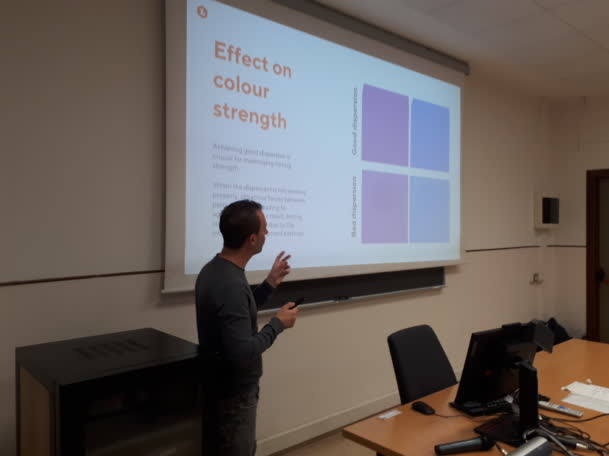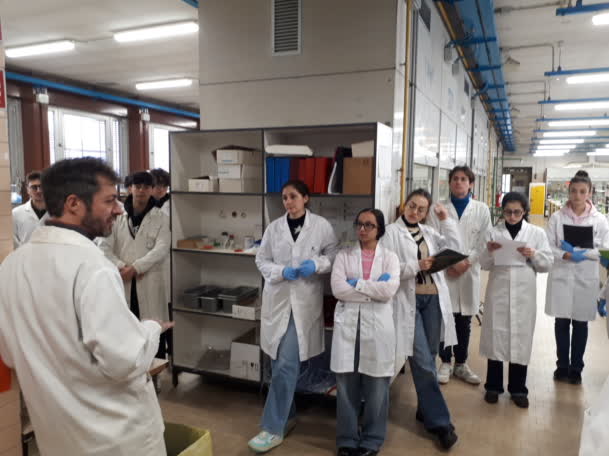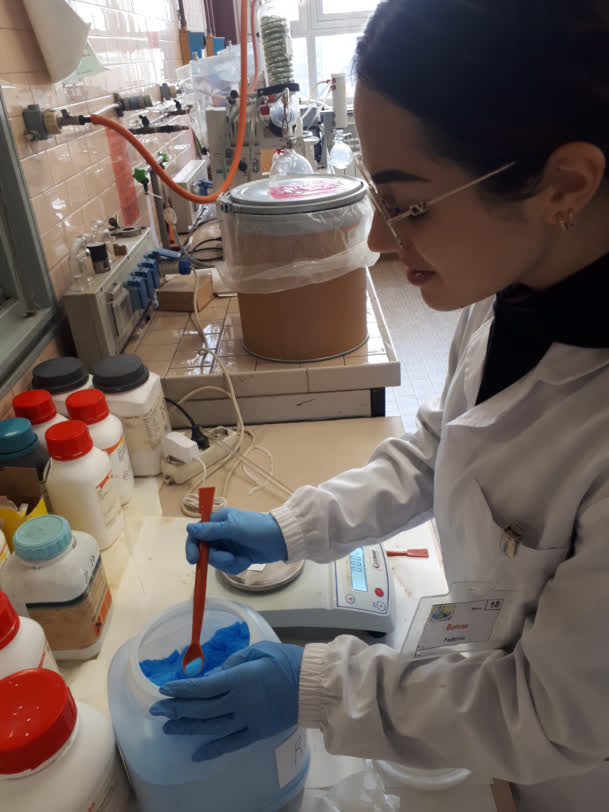- science
- education
- community
The Power of Chemistry in Everyday Life
A Bridge Between Industry and Academia
Reading time: 3 min

At Università degli Studi di Milano, the Advanced Industrial Chemistry with Lab course, part of the Master’s Degree in Industrial Chemistry, is opening up new opportunities for collaboration with manufacturing chemical companies.
This initiative, supported by Professor Marco Ortenzi, has provided students with invaluable hands-on experiences, demonstrating the critical role that chemistry plays in our daily lives.
As part of this collaboration, over fifty students were invited to participate in three intensive training days where some Lamberti’s chemical professionals presented real-world applications of the chemical knowledge the students have gained during their academic studies.
These sessions emphasized how academic expertise in chemical sciences can be directly applied in the industrial sector, bridging the gap between theory and practice.
The increasing importance of university-industry collaborations

Andrea Mascaro (Innovation Manager) and Max Giudici (CASE Lab Manager e Global Product Manager Architectural Paints) shared their personal insights into the evolving role of chemistry and innovation in today’s world.
Their discussions focused on the increasing importance of university-industry collaborations, which are becoming vital to creating a network of highly competitive skills.
This partnership is key in a world that is increasingly interconnected, where the synergy between academic research and industrial application is essential to addressing the challenges faced by the chemical industry in a more effective and innovative way.
Formation and stabilization of solid/liquid dispersions

On November 26, 2024, students participated in a two-hour lecture focusing on the principles that rule the formation and stabilization of solid/liquid dispersions. The importance of these formulations in common products such as paints, cosmetics, and cleaning agents has been highlighted.
The lecture was followed by an in-depth look at the most common dispersing agents used in the industry, particularly acrylic-based polymers.
Students learned about the chemical and structural characteristics of these agents, exploring their reactivity, heterogeneity, and diffusion. They also realized that these polymers not only play a pivotal role in industry but also contribute to the improvement of everyday life quality.
Laboratory Sessions

On December 12, 2024, a group of students had the opportunity to apply what they had learned by synthesizing an acrylic dispersant in aqueous solution, using the techniques and knowledge acquired in the classroom. This hands-on experience was a new and exciting step for the students, who eagerly embraced the opportunity to experiment with what they had studied. It was also a moment to address their questions, helping them better understand what to expect as they move forward in their academic journey. The result of their lab work—a clear blue liquid—served as a symbol of the promising future ahead for these aspiring chemists.
The next day, December 13, 2024, students tested the dispersing performance of the acrylic polymer they had synthesized the day before. Using simple yet valuable experimental equipment, they prepared a high-concentration aqueous slurry of calcium carbonate, initially a semi-solid and difficult-to-mix substance. By adding small amounts of the acrylic dispersant, students observed how the slurry transformed into a smooth, pourable liquid. The change in viscosity, driven by the electrostatic effects of the acrylic polymers, left the students astonished. They witnessed firsthand how chemistry, with its remarkable versatility, can produce significant changes with minimal intervention—an eye-opening experience that demonstrated the powerful, real-world impact of chemical solutions.
Conclusions
This collaboration between Lamberti and Università degli Studi di Milano has been a tremendous success, and due to its positive reception, the initiative will be repeated in January 2025, with a new group of students. This ongoing partnership continues to underscore the importance of involving industry professionals in academia, showing students how the principles of chemistry they study are applied in practice.
The experience serves as a powerful reminder that chemistry is not just a subject learned in the classroom—it is a vital part of the world we live in, shaping everyday products and innovations that improve our lives.
